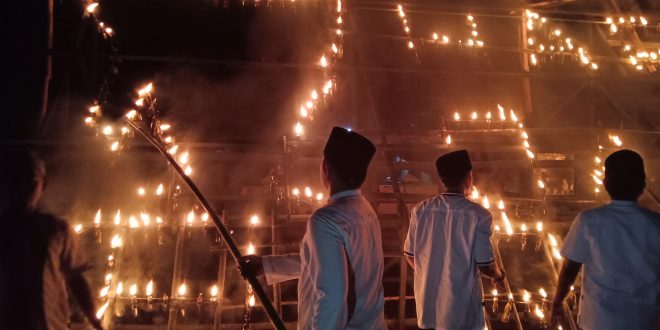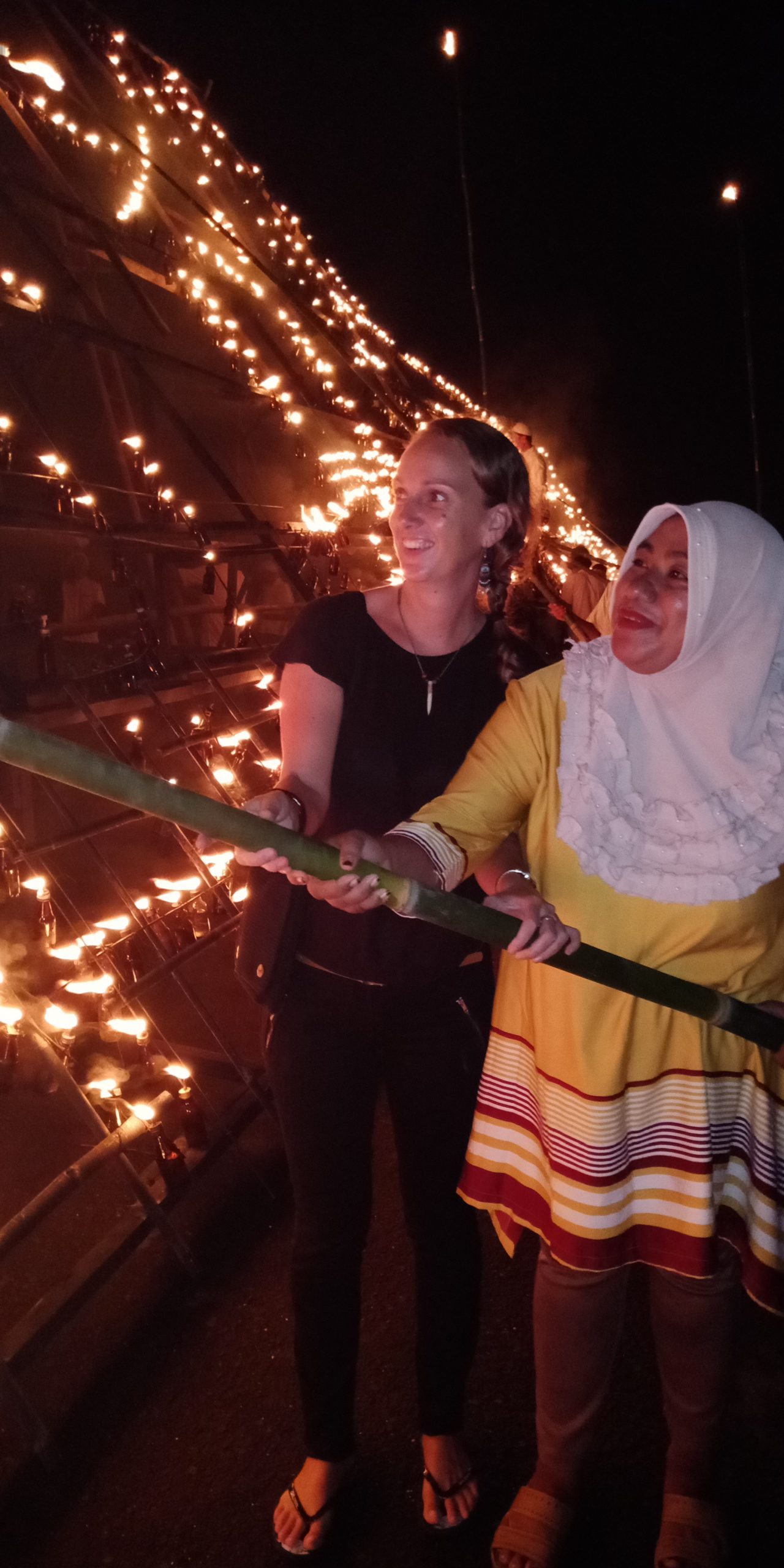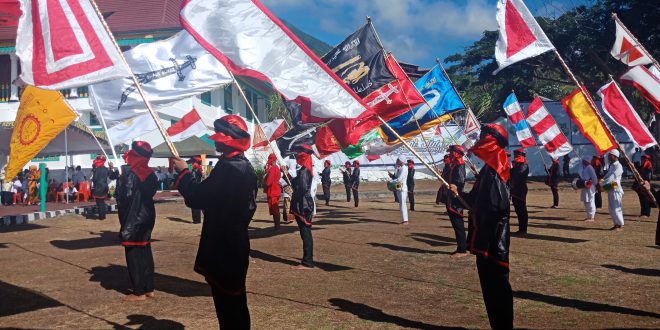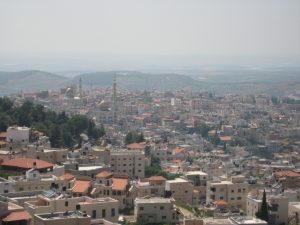 Tidore: a tiny island in the Indonesian Molucca Sea and one of the last remaining sultanates in the world. Forever overshadowed by its bigger brother and long-time rival, the neighboring island of Ternate, it is known by few and visited by even less people. I first set foot there in December 2018. Little did I know I was about to have a transformative meeting and would return the next year, for one of the most culturally rich and immersive experiences of my traveling life.
Tidore: a tiny island in the Indonesian Molucca Sea and one of the last remaining sultanates in the world. Forever overshadowed by its bigger brother and long-time rival, the neighboring island of Ternate, it is known by few and visited by even less people. I first set foot there in December 2018. Little did I know I was about to have a transformative meeting and would return the next year, for one of the most culturally rich and immersive experiences of my traveling life.
A small island with a big history
While the name for most people doesn’t ring a bell, history tells us the sultanate of Tidore used to be a force to reckon with. Though only 600 square miles wide – now home to approximately 50,000 people – it was a major regional, political and economic power in the pre-colonial area. Founded in 1409, the sultanate once ruled large parts of eastern Indonesia, including Halmahera, Buru, Ambon and New Guinea. Largely funded by the spice trade, it was locked in a fierce battle for control over it with its neighbor Ternate. Dutch interference during the colonial period significantly weakened the kingdom’s control and the sultanate was abolished after Indonesia’s independence. But in 1999, the sultanate was re-established and the sultan returned to power.
Chance encounter
Nowadays, there is not much left to remind of the grand ambitions of the tiny kingdom, except for some remainders of Dutch and Portuguese fortresses that attest to the historical significance of the island. I first visited Tidore on a day-trip from Ternate – about fifteen minutes by boat – and fell in love with the mellow and friendly atmosphere. Although the sights weren’t particularly special, strolling through the small villages with colorfully painted and well-kept houses was a joy. Near the market, I was stopped by a local man, who invited me to his family home for a cup of traditional coffee. I ended up spending a wonderful afternoon with mister Ipin, his wife Nadira and their daughter Ira. Nadira made the tastiest coffee – flavored with local spices and nuts – and mister Ipin turned out to be a passionate teacher of Tidore’s culture and history. The family ran a small homestay and I left feeling sorry I couldn’t stay longer, but promising I would be back.
Becoming a part of the family

A few months later my phone went off: I received a text message from mister Ipin, inviting me to the annual Tidore Festival. At the time I was living in Manado, in Sulawesi, located a short flight or overnight boat ride from Ternate. Not really knowing what to expect, but driven by the good memories of my former visit, I made my way back to the Moluccas. I was given a room at the home of pak Ipin’s father- and sister-in-law, who took me in as if I was a family member. This was a real homestay: not the kind that acts as a small guesthouse, but the kind where you actually become part of the family for the duration of your stay. I shared my meals with the family and whenever they had the opportunity they would come and hang out with me, or take me on trips around the island.
Meeting the local community
I was also made part of all the community activities and events the family attended. One night, I joined them to a traditional ritual in honor of a deceased friend. As soon as I entered the house where the event was to take place, I was taken along to the kitchen area, where I joined a group of chattering women. Peeking from behind a curtain with some of the other women, I witnessed an elaborate ritual of men chanting and praying. Afterwards, there was a communal meal with plenty of friendly exchanges and jokes. It was an experience unlike any other: I felt accepted straight away. I was a white western female, visiting an intimate ritual within a traditional Muslim community, but I didn’t feel like an outsider for one second. That night, inspired by the kind hospitality of the local community, I felt convinced that people from around the world can truly connect, no matter how big their differences.
A memorable evening at the sultan’s palace
The Tidore Festival turned out to be an annual celebration of the sultanate’s anniversary, featuring a week-long program celebrating local culture through traditional rituals and events. For the most impressive ritual of them all, my host family and I headed to the sultan’s palace or kraton. As we entered the palace, a circle of men was forming in the main area. Soon, the men started to sing synchronized, rhythmic chants that filled the air. As in trance, one man after the other got up and made his way to the middle of the circle. The men in the center – two at a time – repeatedly stabbed themselves in the chest with large knives. I held my breath, but to my surprise and relief the knives hardly drew any blood. A participant afterwards told me that the small wounds only itched and would be healed the next day. Until today, I have no explanation for it, other than that I had an up-close encounter with something supernatural.

Thousands of candles and crazy bamboo
The peak event of the festival was preceded by an atmospheric evening program. While walking to the event location, we passed streets lined with burning candles. At a square, people gathered around a huge bamboo construction with hundreds of candles, which were being lighted by men with long bamboo poles. By the candlelight, young men engaged in traditional games, such as bambu gila or ‘crazy bamboo’, in which two groups of men try to keep hold of a bamboo stick, while a spirit is supposedly moving it left and right. It was a magical evening, and while mister Ipin drove us home on his motorbike, with little Ira falling asleep on my lap, I felt grateful to be part of this world so different from mine for a little while.
Early morning parades and traditional dances
The next morning, the whole island woke up early for the traditional parade to the sultan’s palace. From every corner of the island, groups of people dressed in traditional attire started before sunrise on a long walk to the kraton. In every village the parade passed, new people joined, so that the line of people grew bigger and bigger. I too joined the swelling numbers and let myself take along the stream of chattering, drumming, and singing people and waving flags. At a crossroads near the palace, parades coming from all four directions met, and the large crowd entered the palace. After flag carriers ritually brought in the flags, an elaborate show featuring local dance and music took place, and the sultan – who was unfortunately sick – even made a quick appearance.
What traveling is all about
I returned to Manado feeling overwhelmed and extremely touched by the hospitality and kindness I had encountered in Tidore. While making my way back to the harbor, I teared up just a little, and realized that encounters like this are the reason I love to travel and will always continue to do so. With the guidance of mister Ipin, one week in Tidore had taught me more about local culture than I would have learned traveling on my own in a year. I got to know a world guided by traditions and rituals, where the supernatural is real, and the mystical and the ordinary mingle. I also got to know people who opened their homes and their hearts to me, and experienced a connection that bridged all the gaps between us. To me, this is exactly what traveling is all about.
Follow my other Slow Travels here on Green Prophet



